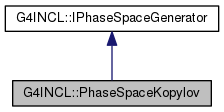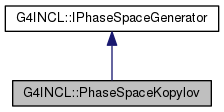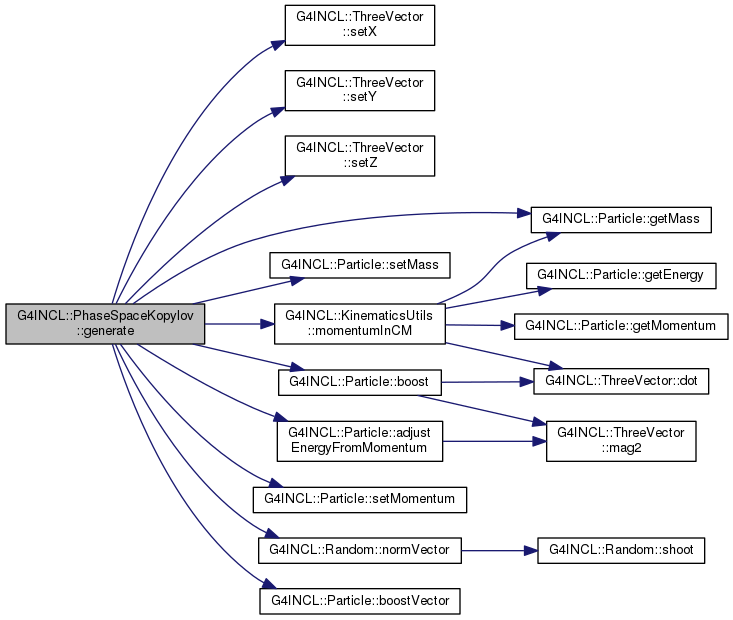|
Geant4
10.03.p01
|
|
Geant4
10.03.p01
|
Generate momenta using the Kopylov method. More...
#include <G4INCLPhaseSpaceKopylov.hh>


Public Member Functions | |
| void | generate (const G4double sqrtS, ParticleList &particles) |
| Generate momenta according to a uniform, non-Lorentz-invariant phase-space model. More... | |
 Public Member Functions inherited from G4INCL::IPhaseSpaceGenerator Public Member Functions inherited from G4INCL::IPhaseSpaceGenerator | |
| IPhaseSpaceGenerator () | |
| virtual | ~IPhaseSpaceGenerator () |
Generate momenta using the Kopylov method.
Definition at line 48 of file G4INCLPhaseSpaceKopylov.hh.
|
virtual |
Generate momenta according to a uniform, non-Lorentz-invariant phase-space model.
This function will assign momenta to the particles in the list that is passed as an argument. The event is generated in the CM frame.
| sqrtS | total centre-of-mass energy of the system |
| particles | list of particles |
Implements G4INCL::IPhaseSpaceGenerator.
Definition at line 63 of file G4INCLPhaseSpaceKopylov.cc.
